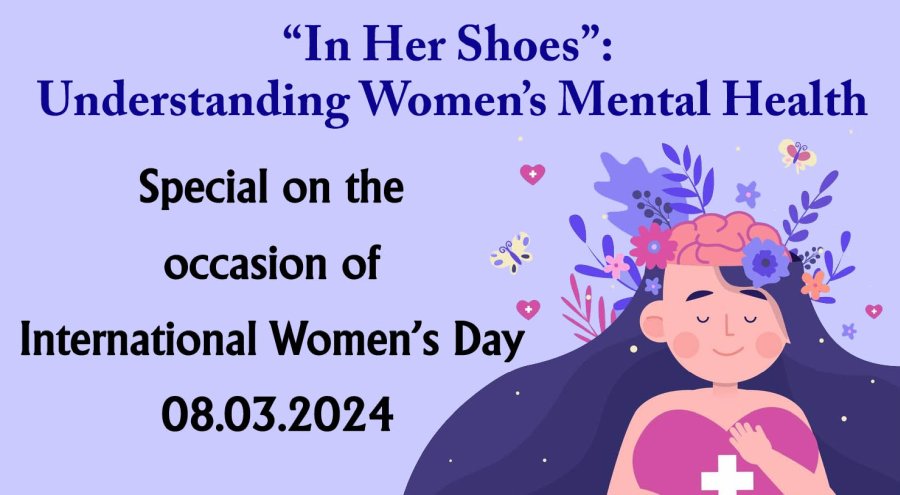Women are disproportionately affected by mental health challenges, which often remain unseen but can profoundly disrupt their social and professional lives, impacting their overall well-being. Despite the significant impact, women’s mental health often goes overlooked. A recent nationwide study conducted in India found that a staggering 82% of women in the reproductive age group who experience mental health issues do not seek treatment. This treatment gap can be attributed to various factors including stigma, cultural norms, and financial limitations.
One might argue as to why there is a need to study women’s mental health separately. This need arises from several key factors:
- Biological Influences : Women experience unique hormonal fluctuations during different life stages such as menarche, menstruation, pregnancy, and menopause, which can predispose them to specific mental health challenges.
- Psychological Factors : Research indicates that women tend to exhibit higher levels of certain personality traits like neuroticism (meaning greater tendency to get sad and moody), making them more susceptible to developing mental health issues.
- Social Pressures : Women often face a multitude of social stressors including domestic violence, workplace discrimination, and societal expectations, which can exacerbate mental health concerns.
Recognizing the symptoms of mental health issues in women is crucial for early intervention. These symptoms may include persistent sadness, loss of interest in previously enjoyed activities, anxiety, mood swings, and changes in behaviour, especially surrounding their crucial life stages such as menstrual periods, pregnancy and menopause.
Treatment options for women’s mental health issues encompass a range of modalities including counselling (psychotherapy), psychiatric medications prescribed under the guidance of a qualified psychiatry (which have minimal side effects when used appropriately), and hormonal treatments when indicated, often in collaboration with a gynaecologist.
Preventing mental health issues in women involves adopting proactive self-care strategies such as regular exercise, engaging in relaxation techniques, pursuing hobbies, maintaining a balanced diet, avoiding substance abuse, and nurturing a strong support system by confiding in trusted individuals.
By acknowledging and addressing the multifaceted aspects of women’s mental health, we can work towards reducing stigma, increasing awareness, and fostering supportive environments that promote mental well-being for all women

Dr. Harkishan Mamtani
Consultant Neuropsychiatrist
MBBS (GMC, Nagpur)
MD Psychiatry (NIMHANS, Bengaluru)
MRCPsych (UK)
PDF in Neuropsychiatry (NIMHANS)
Ex- Senior Resident (AIIMS, Nagpur)
G Kumar Arogyadham
238, Guru Harikrishan Marg,
Nara Road, Jaripatka, Nagpur-14
Whatsapp: 91-8380022225

